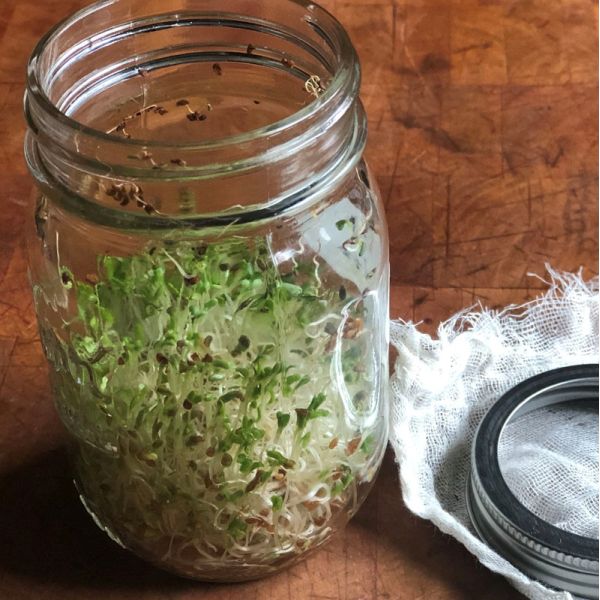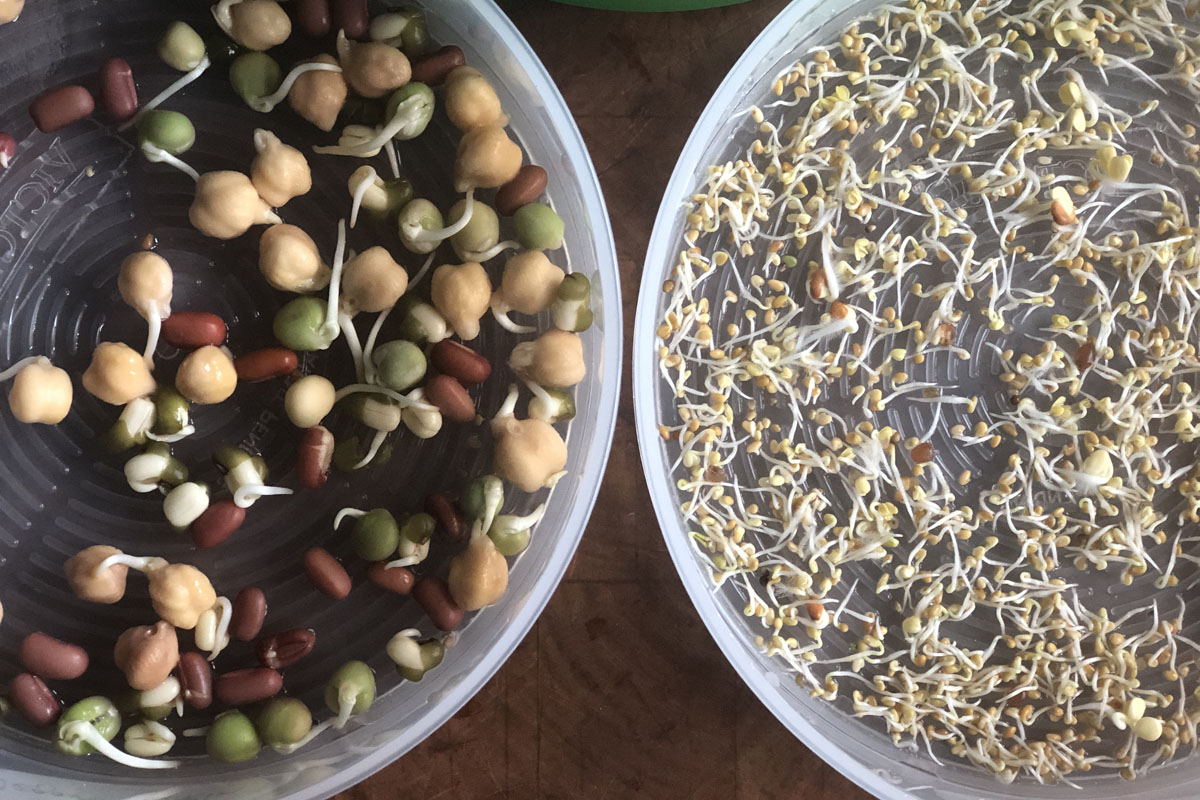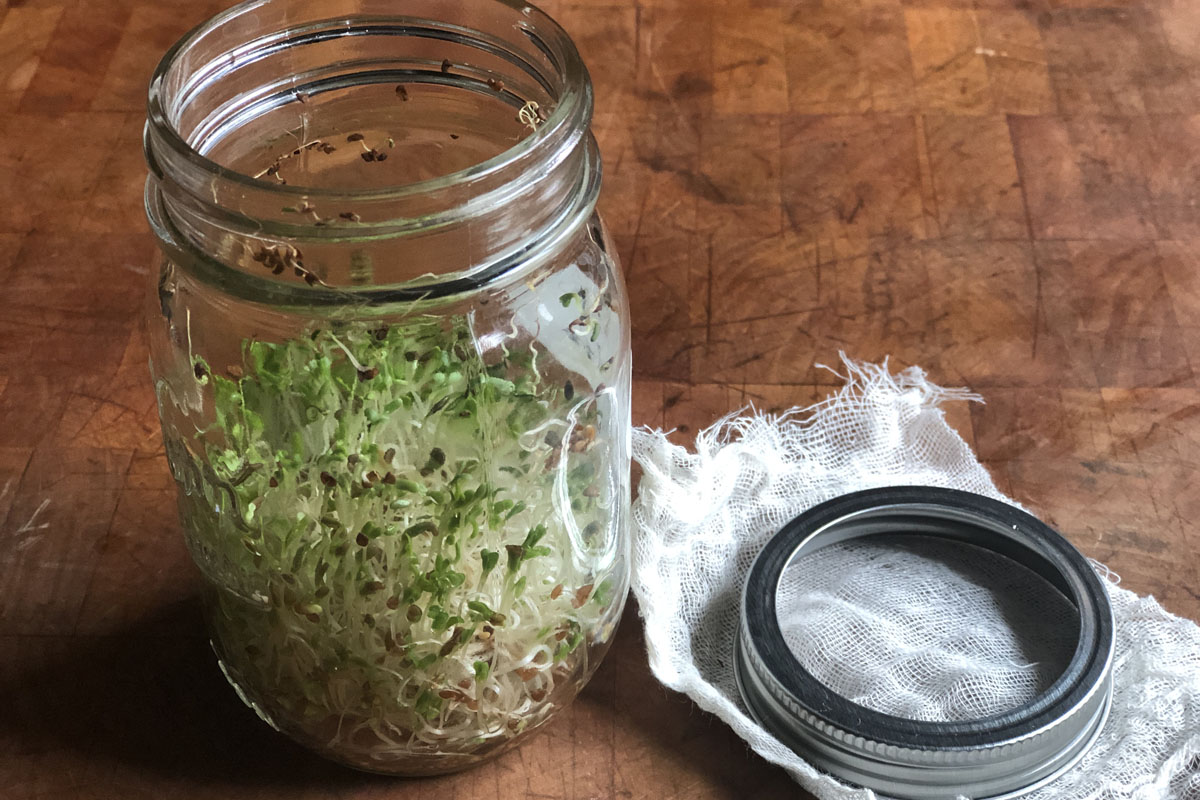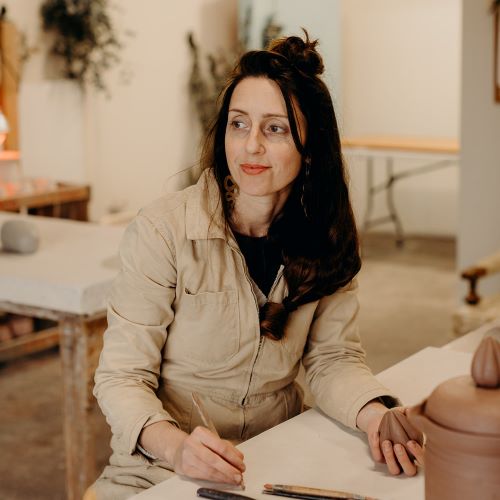

If you have been interested in sprouting seeds at home, it’s always a good time to start. Regardless of the weather outside, you can sprout on your kitchen counter all year round, and in as little as two days you will have a batch of inexpensive, nutritious sprouts. Sprouting is also a fun activity for kids, and they can be recruited to grow their own little “garden” indoors. For the most basic set-up, all you need is a glass mason jar, seeds to sprout, water, and a bit of light cloth. Read on for this simple sprouting technique!
 As much as I love traditional alfalfa seeds for sprouting, there are many different types of seeds that can be grown. Alfalfa is mild and delicious, but alternatives include broccoli sprouts, alfalfa, clover, and sunflower sprouts (another favorite), and radish or mustard seeds can be sprouted for a spicy kick.
As much as I love traditional alfalfa seeds for sprouting, there are many different types of seeds that can be grown. Alfalfa is mild and delicious, but alternatives include broccoli sprouts, alfalfa, clover, and sunflower sprouts (another favorite), and radish or mustard seeds can be sprouted for a spicy kick.
Some of the protein-rich sprouts include chickpeas, lentils, peas, adzuki beans, mung bean sprouts, and even quinoa sprouts. The protein sprouts tend to be the fastest to grow, at only 2-4 days. Once the sprouting “tails” of protein-rich legumes are close to ½” long, they are ready to eat!
 While there are many sprouting jars and special sprouting lids available, sprouting in a jar can be very simple and inexpensive. All you will need is the following:
While there are many sprouting jars and special sprouting lids available, sprouting in a jar can be very simple and inexpensive. All you will need is the following:
Pint Mason Jar
Metal Screw Band & Lid
Sprouting Seeds (any kind)
Water
Fine Mesh Strainer
Directions: Sterilize your jar in boiling water, or rinse in hot soapy water. For a pint jar, pour approx. 1 Tbs. of seeds in your jar, cover with 1 cup of water, and screw on the lid. Let soak for half a day or overnight. Strain the seeds. Place a small piece of cheesecloth or lightweight fabric over the top, and screw on the metal band (without the inner lid) to allow for air circulation. At least once a day, rinse the sprouts by adding cold water to the jar, and straining. Depending on the variety of seeds used, your sprouts will be ready to eat in 2-7 days! Use them immediately, or keep them refrigerated in a lidded container for a few days.
 Sienna Orlando-Lalaguna is the owner and maker behind Sienna Ceramics. She is a foodie, urban gardener, and plant-lover with a background in professional cooking. Her interest in food preservation stems from a love of local, organic produce, and a desire to extend the harvest from season-to-season. Sienna is interested in reviving the knowledge of fermentation, and bringing this ancient process back into modern communities like yours!
Sienna Orlando-Lalaguna is the owner and maker behind Sienna Ceramics. She is a foodie, urban gardener, and plant-lover with a background in professional cooking. Her interest in food preservation stems from a love of local, organic produce, and a desire to extend the harvest from season-to-season. Sienna is interested in reviving the knowledge of fermentation, and bringing this ancient process back into modern communities like yours!